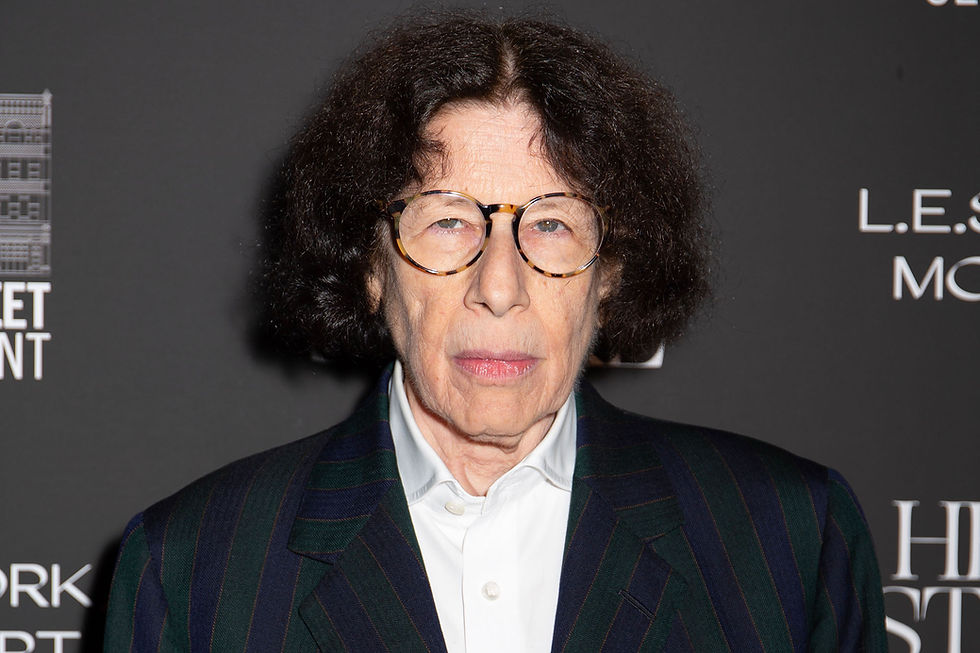an evening with fran lebowitz and beyond
- Minyan Team

- Jul 4, 2022
- 3 min read
By Rabbi Daniel Lichman

I saw social commentator and humorist Fran Lebowitz on her UK tour. She was candid, hilarious and truthful as always. Yet coming so soon after the overturning of Roe v Wade, the evening conversation with Lebowitz felt darker and more angry than her show on Netflix. (For a powerful Jewish midrashic response to this news I share with you a powerful piece written by my colleague Rabbi Margaret Jacobi).
One audience member asked Fran: ‘The world is getting worse: what do we do?’ Her response, in not evading the terror of our current reality, took the audience half way to an answer. At our community meeting last week we offered the other half of the answer: we ‘show that another world is possible.’
Here’s a version of my contribution at that meeting:
I read recently about the government slashing the budget for rewilding projects saying that the land is required for farming. The explanation is that in the face of food shortages we will need more land for the production of food.
Rewilding as a policy involves careful setting aside of land and withdrawal of human interference allowing brambles, trees and wild herbivores to create a self-regulating system which will, through natural process, revitalise the land. Re-wilding as a policy for land management has been given powerful impetus in the face of climate collapse. The apocalyptic scenario of drought, desertification and climate refugees, possibly leading to this planet becoming uninhabitable for human beings, terrifies us and calls on us to radically transform how we relate to land. Rewilding is a response to this apocalyptic nightmare.
Food shortages are becoming catastrophic. The blocking of the Ukrainian grain harvest leaving the country through the Black Sea ports is already causing devastating hunger in East Africa and soaring food prices the world over. It is likely that there is a deliberate strategy at play from Putin’s Russia: to destabilise our society through food and fuel scarcity and a new refugee crisis. Putin’s war is creating another terrifying apocalyptic scenario. Turning land over to intensive farming is a response to this apocalyptic nightmare.
This news item interests me not for the specifics of the policy but for the terrifying choose-your-own-apocalypse dilemma with which the government framed its choice. It is unclear whether our political leadership will be able to inspire us with a non-apocalyptic vision for the future. This then is a vital role for faith communities and civil society.
I envision our community rising to the task to which the current reality calls us in two key areas:
Firstly, we are to be a place of comfort. Drawing up texts, rituals and practices from the deep well of our tradition we will find ways to remain present in, and witness to, the current reality. We will support one another in the work of grief, truth-telling and comfort that will be required. We will find ways to support one another on a practical level too as the instability of the world is felt within the porous boundaries of our community.
Secondly, we are to model a just and loving way for human beings to be together. We are to be a community of love where the sovereign heart learns to overflow in blessing as we honour the uniqueness of each one of us. We are to be a community of justice where we practice using the muscle of courage as we learn how to hold one another to account and respectively challenge one another to in turn become more just.
On Sunday we elected Rachel, Marco, Donald and Sam as new trustees to join Martin, Adam, Allison and Lois as we honoured Debbie and Stephanie for their commitment. The new team faces important practical questions including:
what are our short term and longer term goals?;
how do we provide the right infrastructure for the education of our children?;
what is the right staffing structure to lead our community towards growth?
All of these, and the many other, practical questions are in service of these bigger questions:
how can we be an oasis of comfort in a swamp of terror?;
how do we become resilient people who feel fear and yet choose to act from love?;
how do we become courageous people who feel shame yet choose to act justly?
‘Ose Shalom bimromav hu ya’asei shalom aleynu…
May He who makes peace in His heights, make peace on all of us...’
Just as for God’s peace to ripple out in the world He must first make peace in His realm so too are we invited to respond in our community, ready for our justice, love and peace to ripple out to the world beyond.




Comments